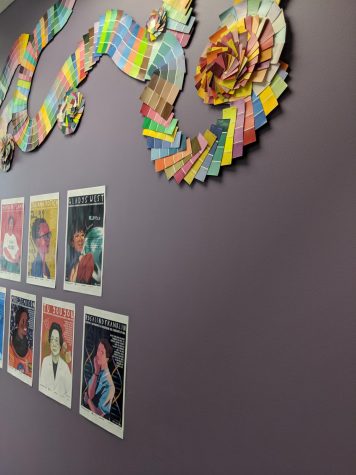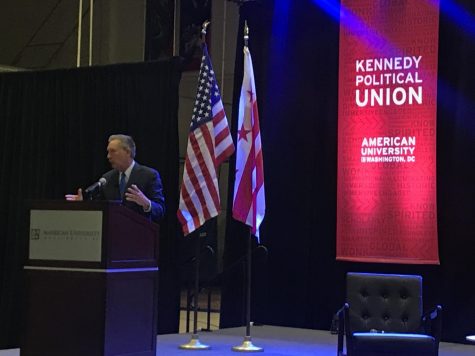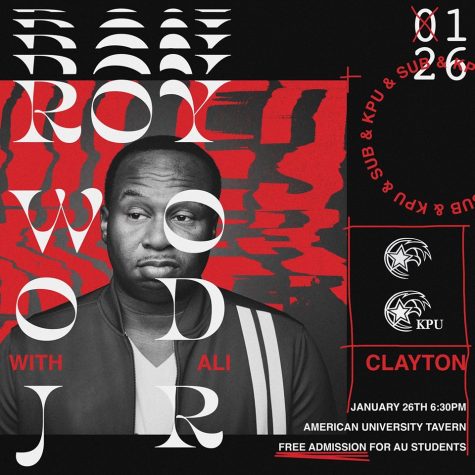Ethiopian Punk Rock in the District Smells Like Ethiopian Spirit
Over the summer I had the opportunity to see one of my favorite DC musicians, David “Spoonboy” Combs, play a show backed by one of my favorite bands, Good Luck.
While moving with the music in the front row, I happened to look behind the musicians. Instead of some cool punk poster or tapestry, I saw a large portrait of the former Ethiopian Emperor, Haile Selassie.
The show was taking place at Ras, an Ethiopian restaurant on Georgia Avenue, just north of Petworth. It wasn’t the first punk show I had been to at an Ethiopian restaurant. In fact, I had noticed a trend: a lot of shows were being booked at Ethiopian restaurants and other unusual spaces.
Throughout high school and my first year of college, most of the Do-It-Yourself (DIY) punk shows I went to in DC were in people’s basements or living rooms. Chris Moore, a member of a few local hardcore punk bands who also books DIY shows, said he started booking shows at restaurants as “a product of not having steady DIY spaces in DC and resorting to alternative places to have them.”
Moore sees it “as the restaurants helping us out by giving places for our shows and us helping them out by giving them business.”
Washington, DC, is home to the largest Ethiopian community in the country. And similar to any immigrant community, many enterprising immigrants opened up shops and restaurants catering to their community. The area around 9th and U streets NW, known as the “Black Broadway” before the 1968 riots, is now known as “Little Ethiopia,” home to many shops and restaurants that opened after rising prices drove many Ethiopian immigrants from Adams Morgan.
According to Moore, many of the restaurants where he books shows also host dance nights or live music of other sorts on a few days of the week.
“Having punk shows there sometimes brings in business on potentially slow nights,” he said. Moore says owners are usually “pumped” to have the extra money, and happy about having live music in their establishments. Owners declined to comment on this story because most establishments do not have proper licenses to have underage patrons around during the evening,
Moore says some bands are taken aback a little bit about playing in a restaurant. Touring bands are usually used to playing in traditional punk spaces like basements, but once they see the exciting, upbeat atmosphere, Moore says they come around.
Recently, a Salvadorian restaurant in Tenleytown, Casa Fiesta, has hosted shows as well. Robin Zeijlon, a high school student at the Georgetown Day School, started booking shows at Casa Fiesta in the spring. He says the shows have facilitated a bit of a revival for the struggling restaurant. Now punk concerts draw a new crowd that provides business to restaurant owners.
Some may see mostly white punk bands playing shows in Ethiopian and Salvadoran restaurants as the newest form of gentrification to hit the District. But Moore says that’s not the case. Instead, he sees it “as the restaurants helping us out by giving places for our shows and us helping them out by giving them business.”
Restaurants and punk rock bands may not intentionally be taking part in sociopolitical change—but the Ethiopian eateries are allowing musicians to expand into fresh, new venues and those musicians are helping bring in more revenue.






